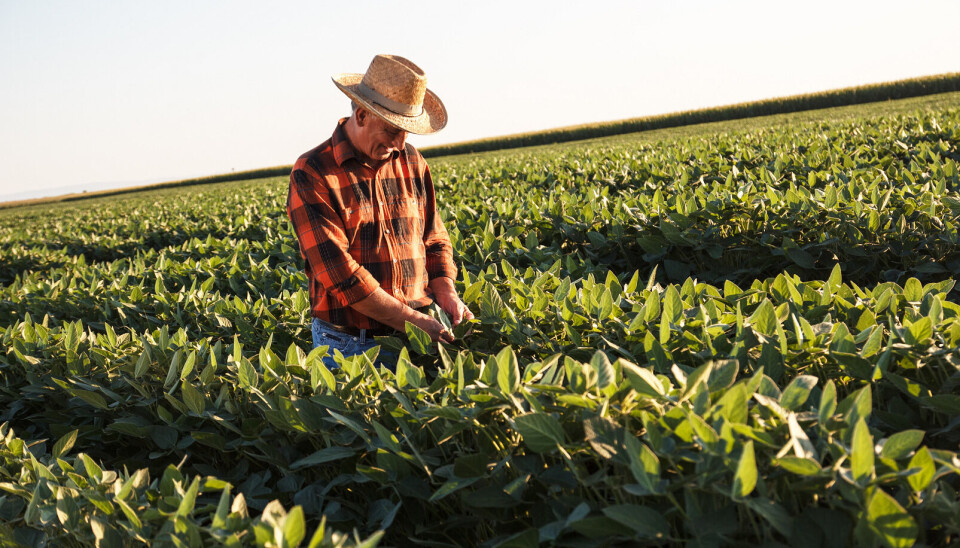
BioMar to use high-tech soy to reduce footprint of feed
Growing protein-rich varieties requires less water and generates less CO2e than production of soy protein concentrate
Salmon feed producer BioMar has announced a strategic collaboration with United States feed technology company Benson Hill to advance its responsible sourcing programme.
The Danish company will use Benson Hill’s high protein, lower carbon, US-grown soy for consecutive seasons.
St Louis-based Benson Hill uses a combination of machine learning and genetic selection to produce a range of soy varieties with different characteristics. It also uses gene editing for research and development, but not for commercial products. It has a segregated value chain for its non-GMO soy which has ProTerra Certification.
Minimal processing
Ultra-high protein (UHP) and low anti-nutrient levels in the soy reduce the need for processing steps to concentrate protein levels.
The result is a minimally processed ingredient designed as an alternative to commodity soy protein concentrate (SPC) that requires up to 70% less water and up to 50% less CO2e (carbon dioxide equivalent) to produce than US-sourced SPC.
UHP soy also uses up to 83% less water and up to 89% less CO2e when compared to Brazilian-sourced SPC, accounting for the impacts of deforestation.
Reducing impact
Feed is the primary cost in fish farming and the major contributor to its carbon footprint. BioMar said it is assessing how the advantages of Benson Hill ingredients advance its sustainability programme and reduce the impact of aquaculture farming for BioMar customers.

“BioMar has made a commitment to reduce the impacts of our feeds, and 97% of the carbon footprint comes from the feed ingredients,” said Morten Holdorff Møjbæk, global sourcing director for BioMar Group. “With our exit last year from the Russian raw material market, it was important for us to find suppliers committed to working with us to ensure we deliver on our responsible sourcing ambitions. Benson Hill’s closed-loop business model, robust US farmer network, and ability to trace back to seed make them an ideal collaborator.”
Carbon emissions
Benson Hill chief executive Matt Crisp said: “By working with a global leader like BioMar, we can help accelerate ongoing efforts in the industry to stand up fully deforestation-free supply chains and decrease the carbon footprint of products consumers love.
“Through this joint effort, Benson Hill and BioMar will be able to further research how high-protein, low-oligosaccharide, plant-based ingredients perform in aquaculture feed at scale, and potentially slash the use of one of the biggest contributors of carbon emissions in that supply chain.”
Oligosaccharides are anti-nutrients, and Benson Hill says that a lower oligosaccharide content can aid in fish digestion and water management practices.
























































